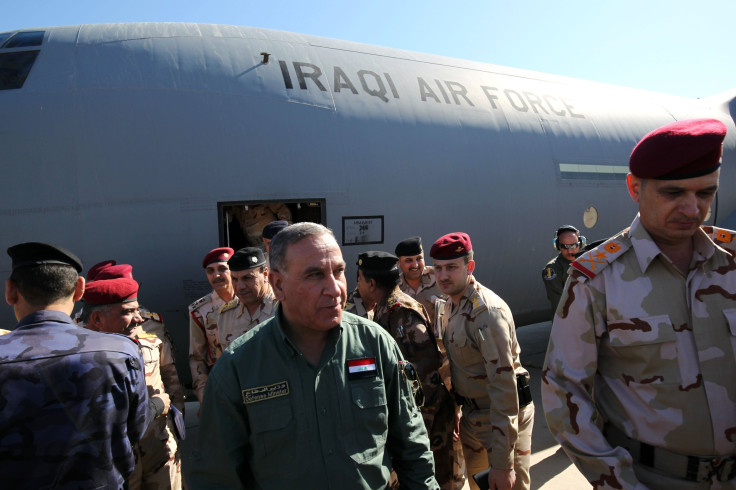US Drops Leaflets On Mosul Promising Liberation

A U.S.-led coalition dropped leaflets last week on Mosul, the Islamic State group’s headquarters city in Iraq, promising the civilians there that they have not been forgotten and that they will be liberated. Before those people had the chance to see the leaflets, however, members of the militant group, aka either ISIL or ISIS, forced them back into their homes and proceeded to collect all of the fallen paper, the Pentagon said Friday.
“The leaflet drop may have struck a little bit of a chord, struck a nerve with ISIL,” said Army Col. Steve Warren, a representative of the U.S. Defense Department. “These leaflets were planned and designed and printed and everything by the Iraqi army. They asked us for some help dropping the leaflets, and so we provided that. They will probably continue to conduct these leaflet drops. It is unlikely that the enemy is able to pick up [every] single leaflet, because they drop them in the thousands, tens of thousands.”
The leaflets are a new tactic being employed by the Iraqi military to boost the morale of the civilians living in ISIS-controlled territory, Warren said. The papers dropped on Mosul last week included the names of cities already liberated by Iraqi security forces.
After eight months of battle, Iraqi forces pushed the last ISIS extremists out of the city of Ramadi in the country’s western Anbar province in December. However, the Sunni militant group is still in control of Fallujah, just east of Ramadi and about 40 miles outside the capital Baghdad. Iraqi forces will need to take Fallujah before gaining control of Anbar and moving on to the large city of Mosul in the north.
Iraqi security forces have vowed to retake Fallujah, but ISIS has maintained its grip on the city. Thousands of people are still living in the besieged area, and many have reported they are being starved by the extremist group. Sunni tribesmen there have taken up arms against the militant group, but a lack of ammunition and weaponry, as well as international support, has limited their success. Tribal leaders in Fallujah have warned that if their fighters do not receive the weapons needed to combat ISIS, hundreds of people would die.
The clock for liberating Mosul is ticking. The Mosul Dam is no longer in the hands of ISIS, but it requires serious restoration, and the United Nations said last week it is at risk of failing. Samantha Power, U.S. ambassador to the United Nations, and Mohamed Alhakim, Iraq’s permanent representative at the U.N., held a briefing on the status of the dam and said that in the event of a breach, there is the potential for a 45-foot-high wave that could scour everything in its path. The dam is a two-mile-long barrier that can hold back as much as 441 million cubic feet of water.
Mosul dam failure wld be catastrophic—entire pop of Baghdad wld face choice to flee or risk being stranded by flood pic.twitter.com/O5u2ZBUojz
— Samantha Power (@AmbassadorPower) March 9, 2016
But the operation to retake Mosul is still several months away, according to Iraqi senior officials. “We are all trained, qualified and ready for battle, but this force is not enough to retake Mosul,” Iraqi Lt. Col. Mohammed al-Wagaa, stationed at Makhmour, told the Associated Press last week. “The battle for Mosul is going to take a long time.”
Prime Minister Haider al-Abadi has vowed to retake Mosul from ISIS this year, but U.S. Marine Lt. Gen. Vincent Stewart, director of the Defense Intelligence Agency, told Congress last month, “I’m not as optimistic.”
© Copyright IBTimes 2025. All rights reserved.





















